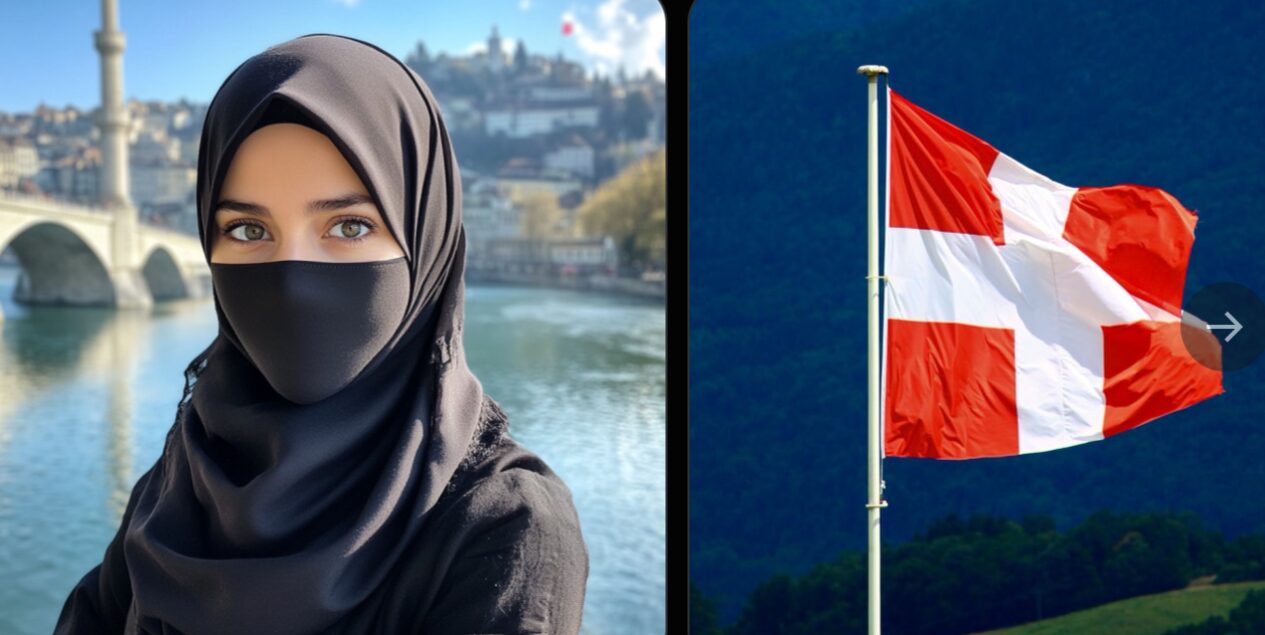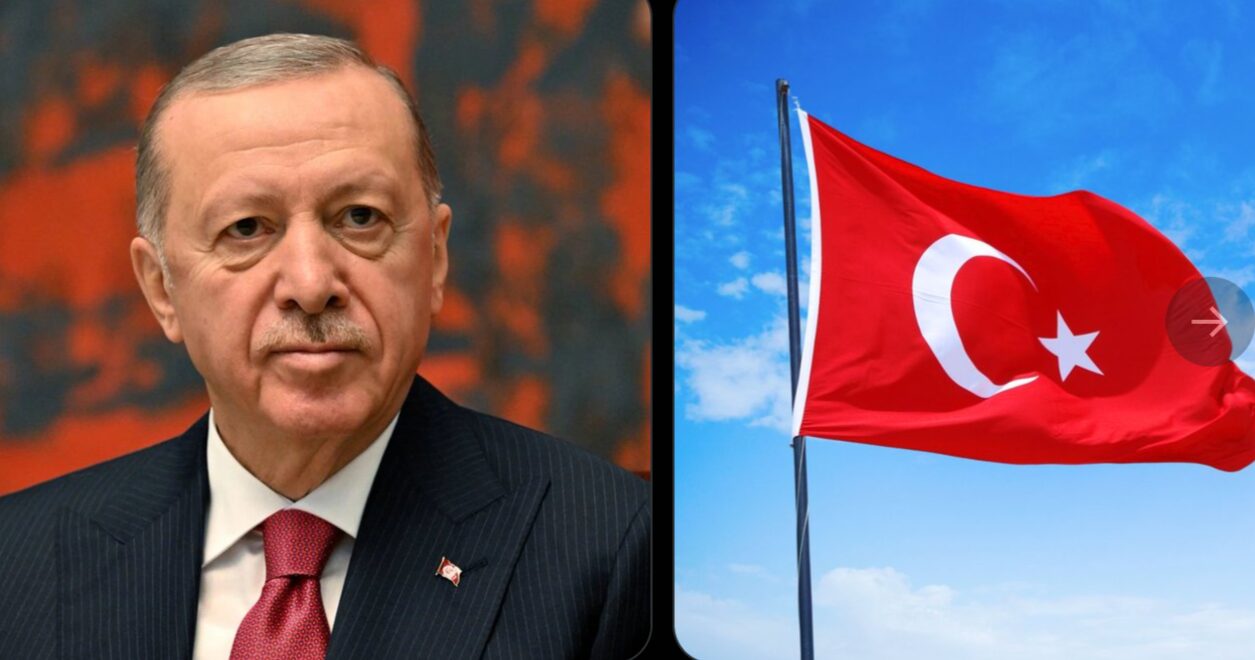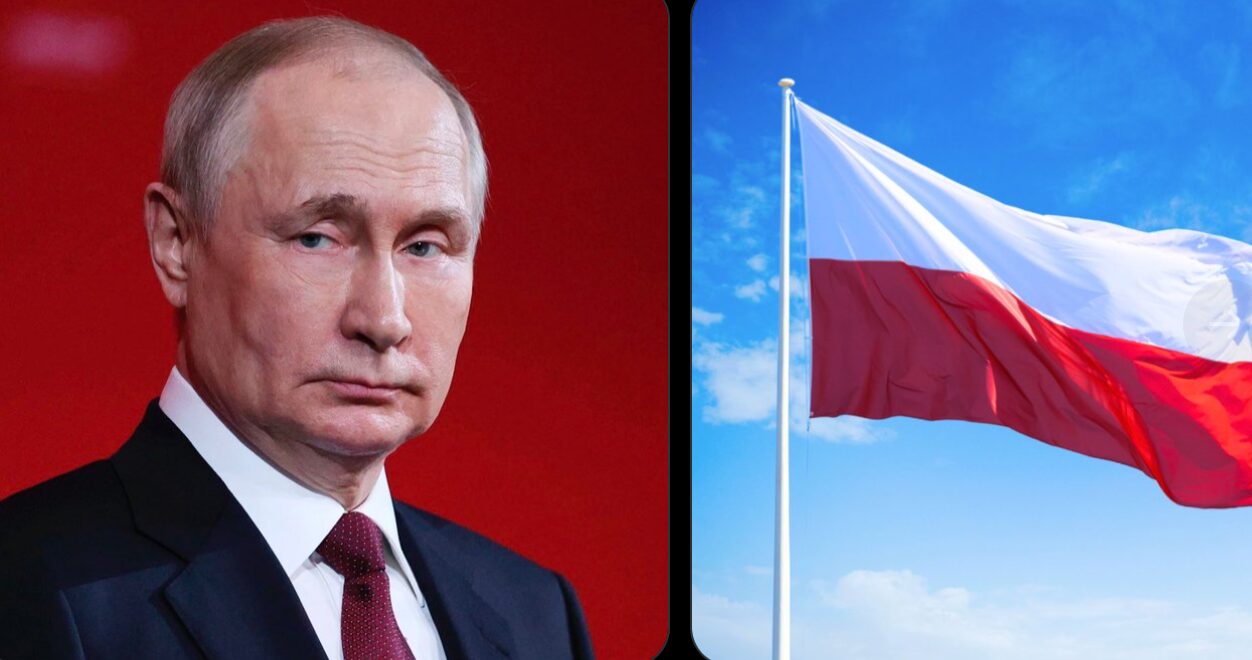SWITZERLAND’S BAN on face coverings begins on January 1, 2025 – Violations will result $1,000 FINES
Switzerland’s Ban on Face Coverings: What It Means for the Future of Personal Freedoms and Society
On January 1, 2025, Switzerland will implement a new law that prohibits the wearing of face coverings in public spaces. This move, which has been the subject of intense debate and scrutiny, is poised to have significant implications for the Swiss people and their visitors. With penalties for violations including fines of up to $1,000, the law will require individuals to remove face-covering garments, including full-face veils like the niqab and burqa, as well as other items like balaclavas and ski masks, in public places. While the law is being framed as a public safety and security measure, it has sparked controversy, particularly regarding its impact on personal freedoms, religious rights, and the multicultural fabric of Swiss society.
The Context Behind Switzerland’s Face Covering Ban
The decision to ban face coverings in Switzerland is not an isolated move. In fact, it follows a growing trend in several European countries where similar measures have been adopted in recent years. The Swiss government’s justification for the law stems from concerns about security, integration, and public order. Swiss officials argue that banning face coverings will enhance security in public spaces, particularly in situations like bank transactions, interactions with law enforcement, or at large public events where identifying individuals quickly is important. They also believe that such a law will help promote societal integration, particularly for the country’s Muslim population, which is one of the groups most affected by the ban.
Switzerland is a country that has long prided itself on its commitment to direct democracy, but the face covering ban is one of several controversial policies that have emerged in recent years, aimed at regulating religious symbols and attire in public spaces. The Swiss people will be subject to the law after the proposal passed in a national referendum in 2021, a process that illustrates the country’s unique approach to governance. While the referendum passed by a narrow margin, it revealed deep divides within Swiss society regarding issues of religious freedom, immigration, and integration.
What Does the Ban Involve?
The law, which will take effect on January 1, 2025, will make it illegal to wear face-covering garments in public places, including streets, shops, and government buildings. This includes full-face veils such as the niqab and burqa, as well as other coverings like balaclavas, ski masks, and helmets, unless the individual is engaged in specific activities like sports or work where wearing a mask is necessary for safety.
Violating the law will result in a fine of up to $1,000, which will be imposed on individuals who refuse to comply. The law applies to both residents and visitors to Switzerland, and anyone found violating it will be subject to the same penalties. Although the law has been framed as a security and integration measure, it has sparked fierce debates over the balance between public safety, personal freedoms, and religious expression.
The Debate Over Religious and Personal Freedoms
One of the most contentious aspects of Switzerland’s face covering ban is its impact on religious and personal freedoms. Critics of the law argue that it disproportionately targets Muslim women who choose to wear the niqab or burqa for religious reasons. The law’s opponents contend that banning face coverings infringes upon the religious rights of individuals who view wearing such garments as an essential part of their faith.
In particular, Muslim groups have expressed their disapproval of the law, saying that it stigmatizes a minority group and undermines the principles of religious tolerance that Switzerland prides itself on. Many Muslim women who wear the niqab or burqa have stated that their decision to do so is a deeply personal one, based on their interpretation of their faith. For these women, the ban feels like an infringement on their right to express their beliefs freely in public.
Switzerland, with its history of respecting individual liberties and freedoms, faces a complex challenge with this law. While the government maintains that the ban is a reasonable measure for promoting integration and societal cohesion, critics argue that it is an overreach that curtails the rights of individuals to make personal choices about how they present themselves in public. The law’s detractors fear it could lead to further alienation of Muslim communities, especially if it is perceived as a symbolic attack on Islam and its practices.
Security and Public Safety Concerns
The Swiss government justifies the ban primarily on grounds of public safety. They argue that face coverings make it difficult for authorities to identify individuals in situations where security is paramount, such as at protests, large public gatherings, or when dealing with law enforcement. Swiss officials contend that face coverings can obstruct communication and hinder the ability of individuals to be identified, which can pose risks in various security contexts.
Furthermore, proponents of the law argue that it is necessary for promoting social cohesion and ensuring that all individuals are seen as part of Swiss society. For those who wear face coverings as part of their religious practice, the government argues that the law encourages integration by fostering more visible and open interactions between people of different backgrounds. In the eyes of the Swiss government, this policy aims to prevent the social isolation of individuals who wear such coverings.
While security concerns are a valid consideration, critics of the law argue that it is based on a perception of threat rather than a genuine need for security. Studies have shown that face coverings are rarely used as a tool for concealing criminal activity, and the law may not effectively address the real security risks that Switzerland faces. Furthermore, some feel that the law unfairly targets a specific group based on their appearance, creating divisions in society rather than fostering integration.
Economic and Social Impacts
The face covering ban is likely to have significant economic and social consequences as well. One of the most immediate effects could be felt in the tourism industry, where visitors from countries where face coverings are more common may find themselves at odds with Swiss law. Religious tourists, in particular, could be discouraged from visiting the country due to the restrictions on personal expression.
Additionally, the law could have social consequences, particularly for the Muslim women who wear face coverings as part of their cultural or religious identity. These women may face increased social isolation or even discrimination, as the law could be perceived as stigmatizing them in public spaces. Many critics fear that the law could further marginalize already vulnerable communities, exacerbating divisions in Swiss society.
In terms of economic impact, the law could lead to decreased participation in public life for those who wear face coverings. For example, women who wear the niqab or burqa may find it difficult to go about their daily routines, such as shopping or visiting government offices, without fear of being fined. Additionally, businesses in Switzerland may find themselves in a difficult position, with employees who wear face coverings facing pressure to comply with the law, potentially causing discomfort or resentment.
International Reactions
Switzerland’s decision to ban face coverings has drawn mixed reactions from the international community. Many European countries, including France and Belgium, have adopted similar laws in recent years, and Switzerland’s move is seen by some as an extension of this trend. However, human rights organizations, including the United Nations, have criticized the law, arguing that it infringes upon the rights of individuals to express their religious beliefs and personal identities freely.
In contrast, countries like Saudi Arabia and Iran, which have strict dress codes for women, may view Switzerland’s decision as an example of Western hypocrisy or interference in matters of personal freedom and cultural practices. The law has the potential to strain Switzerland’s diplomatic relations with countries in the Middle East and North Africa, where face coverings are more common.
The Road Ahead: Will the Ban Stand?
As Switzerland prepares for the implementation of the face covering ban on January 1, 2025, it is clear that the law will continue to be a source of controversy and debate. Supporters of the law argue that it will promote social cohesion and security, while critics believe it undermines personal freedoms and religious rights. In the coming months, legal challenges may arise, and public opinion will likely remain divided.
One thing is certain: the face covering ban will test Switzerland’s commitment to balancing individual rights with broader societal concerns. Whether the law will achieve its intended goals of promoting security and integration, or whether it will fuel divisions and unrest, remains to be seen. What is clear is that this new law will have far-reaching consequences for the Swiss people, their society, and the broader global conversation about the intersection of religion, freedom, and public policy.

















Post Comment